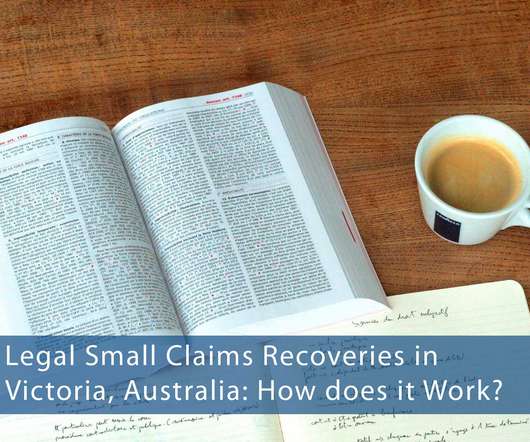Legal Small Claims Recoveries in Victoria, Australia: How Does it Work?
Debt Recoveries
APRIL 28, 2020
Recently we have been focussing on how to reduce your credit risks, promote cash flow deal with debtors during the COVID-19 crisis. However it remains a possibility that with some debtors, legal action may be the only the only course of action to secure your recovery. and we know the debtor or company have assets to satisfy the debt.













Let's personalize your content